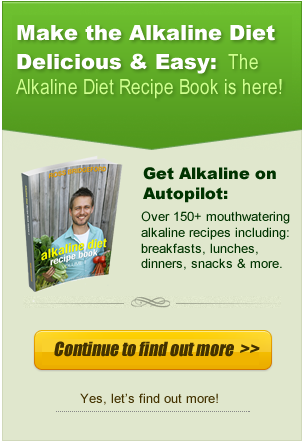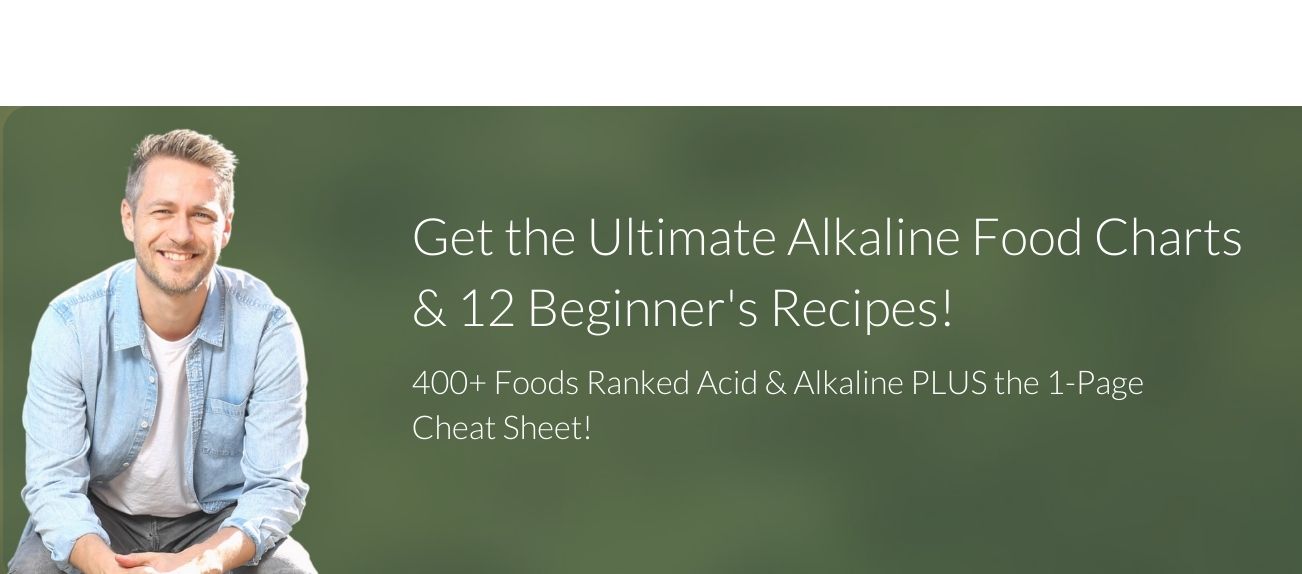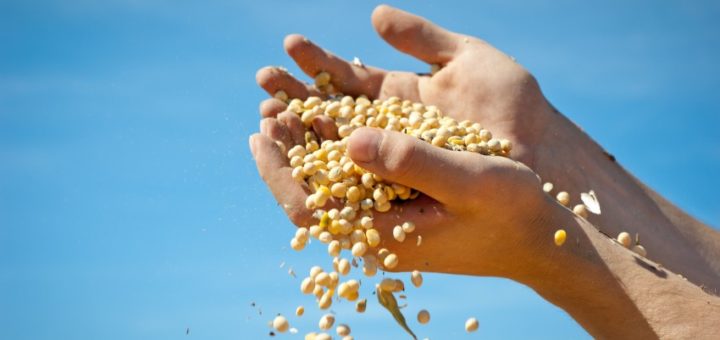Dairy Alternatives!
This week Gareth Edwards, our Alkaline Diet Expert and highly qualified nutritionist, is writing about healthy and alkalising alternatives to dairy products.
He explains why dairy products have an acidifying effect on our bodies, what the healthy and alkalising alternatives are and where we can get calcium from instead.
Dairy Alternatives!
“I’ve given up wheat and dairy”.
For a lot of people this seems like the most logical (and in some cases effective) starting point for taking responsibility for their own health.
So why would it be that this super food that can make a little calf turn into a big cow, be bad for us?
The reality is that a lot of the problem is down to what we humans do to it. The image of a grown human being sucking on a lactating cows teat should however be enough to remind us that it’s probably not totally what nature intended us to drink (or eat) certainly in any quantity.
What’s Good About Milk?
 Why does ice cream taste good and what is it about a café late that makes some of my clients acquire a middle distance stare when I start to talk about giving it up? Well it’s partly the high fat content which gives it flavour combined with sugars. There certainly are a lot of nutrients in milk (minerals, vitamins, essential fatty acids, protein and carbohydrate) but the package is designed for baby cows rather than us. The proportions are very different to that of human milk.
Why does ice cream taste good and what is it about a café late that makes some of my clients acquire a middle distance stare when I start to talk about giving it up? Well it’s partly the high fat content which gives it flavour combined with sugars. There certainly are a lot of nutrients in milk (minerals, vitamins, essential fatty acids, protein and carbohydrate) but the package is designed for baby cows rather than us. The proportions are very different to that of human milk.
The biggest challenges with dairy products actually come when we start getting involved. Pasteurising, industrial production (including anti-biotics and lactating prolonging formulas) and the making of cheeses and yoghurts are what really turns milk into an acidifying product. Research showed that children with known dairy allergies actually experienced a reduction in their symptoms when drinking un-pasteurised milk.
(Very!) occasional use of some organically produced (or ideally un-pasteurised) milk is unlikely to be nutritional Armageddon, but for all the reasons I’ve stated you would want to have some alternatives up your sleeve. After all what are you going to put on your Frosties in the morning …….?! Hang on a minute, sprouted buckwheat with blueberries (as occasional alternative to your green smoothy or breakfast salad!).
The Alternatives
Cartons of commercially produced dairy replacements have their nutritional downsides too. They are all heat treated in order to give them shelf life and can have sweeteners added to remove the bland taste of liquids with little nutritional “life force” remaining. The one that is probably best steered clear of is actually rice milk. Like rice cakes it has a very high glaecemic index (it’s sweet and the sugars are quickly released).
Commercially produced nut and seed milks aren’t great for consuming in large quantities either, because they all have sweeteners such as malt, dextrin or agave syrup added.
So what about soya? There’s a lot of debate about whether soya is actually the best solution to the world’s growing population problems, but in reality studies relating increased consumption to infertility are inconclusive. (If you’re already taking great care with your diet and hydration reducing soya intake to increase fertility might be worth considering – I guess). The isoflavone content has however been shown to have protective effects against some cancers and be beneficial for cardio-vascular health.
If you are going to use commercially produced soya milk as a diary alternative then make sure you pick an unsweetened variety.
What To Do…
As soon as you’ve finished weaning, green plant foods combined with salt and healthy fats can provide you with vast majority of nutrition that you need. It is however healthy and enjoyable (even essential!) to maintain variety and breadth in your diet and hydration choices.
Making your own plant based dairy alternatives is a healthy and nutritious way to get healthy fats, vitamins and protein in an alkaline package. Soaking almonds overnight and then grinding them up with water (and a little cinnamon, if desired) is relatively straightforward. You need to push the mixture through a nut milk bag or sieve before drinking.
As ever your lovely friends at Energise have scoured the planet to make life for the health seeker easier. Their non-dairy milk machines (such as the Magic Bean AP – 302 Soy Milk Maker) should help you make nutritious drinks from natural and nutritious ingredients.
Where To Get Your Calcium From
People worry that if they give up dairy products, their bones and teeth may start to crumble. While cow’s (and other animal) milk does have high levels of calcium, there are other, more nutritionally balanced ways for non-breast feeding humans to obtain this essential alkalising mineral. Highly alkalising green plant foods are packed with it. So too are sprouted seeds and nuts.
Remember though, as hopefully the sun in Europe starts to peak its head around the corner of the volcanic ash cloud, that getting sun exposure is absolutely the best way to make sure that you absorb (even the smallest quantity) of calcium from your diet. Remember that pHour salts contain calcium too.







Thanks so much for the quick reply Ross! Have a good one.
Hi Ross,
Thank you so much for all the amazing information on your site. I’ve been struggling with a variety of health concerns and to my surprise have found that most are a side effects of having an acidic ph. I tested this morning and I’m at 5.5! (well that’s as low as my testing strip would go)
Quick question, in the post above you mentioned that nut milks may not be a good option because of the sweeteners added to them such as agave. Can you tell me where you would place Agave in your food chart? Alkaline, Acidic, somewhere in between??
Thanks for your reply!
Hi Rebeca
Agave is at the ‘better’ end as far as sweeteners go, but it is still sugar and so would still be at least moderately acid forming.
Have a great day
Ross
Protein has a number of important roles in the body, including:
*Repairing of body cells.
*Building and repairing muscles and bones.
*Providing a source of energy.
*Regulating many important metabolic processes in the body.
nutrition advice
a note on the shop bought items is to look out for MSG hidden under another name such as maltodextrin, natural flavouring, etc
check out this site for more info
http://www.truthinlabeling.org/hiddensources.html
Hi Jamie,
rice milk falls into the ‘mildly acidic’ food category. Goats milk is a better alternative as it is ‘mildly alkaline’.
Hi can you tell me if I am ok drinking organic rice milk? if not what milk can I drink? Is goats milk ok?
I had fizzing sound at my thoat for sometime, my doctor said I have acid reflux, I was precribed many medication Nexium, Ranitidine, Lansoprazole and many more they all made my ankle swollen ,now I having altered skin sensation, and inflammation of the body can you advise me, please
Thanks
personally i think almond milk is best as it can be made raw i dont use a nut bag ( not needed if you have a blender ) and why waste all the bits ! soya milk involves heating and is full of enzyme inhibitors, not good and can easily get allergic to this toxic stuff.
tofu and other fermented soy products seem ok though.
Very good article, thanks for this. Giving up wheat and diary have made a huge difference to my energy levels and highly advocate the information provided here.
I always thought that yoghurt was alkaline. Is that not the case?
I HAVE HEAT ALLERGY AND HIGHLY SENSITIVE SKIN.MY FACE BECOME RED AND BURNS.WILL ALKALISING HELP
Hello Ross,
I was wondering if you knew anything in regards to raw apple cider vinegar with the “mother”? Is this an acceptable supplement to take when alkalizing? I know that in Dr. Young’s book, he states to stay away from vinegars because they are too acidic. However, I recently read an opinion somewhere that states this particular kind of vinegar actually turns into an alkaline ash once ingested. Any help or knowledge would be appreciated. I am new to this way of eating and your site. Thank you.
Kelly Duplantis
Broussard, Louisiana